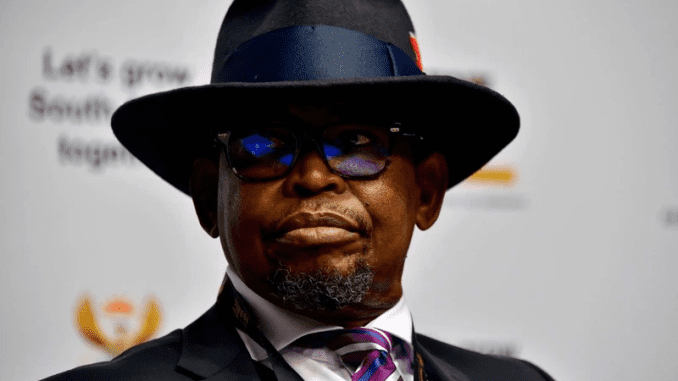
In the face of slow growth and massive debt, South Africa will to raise taxes and spend more on social programs as it approaches general elections in May, the government announced on Wednesday.
The national budget was released by the Treasury one day after President Cyril Ramaphosa declared general elections for May 29. The budget included hikes in income tax as well as taxes on cigarettes and alcohol.
Finance Minister Enoch Godongwana stated, “Difficult decisions are needed to ensure the economy grows and creates jobs. South Africa’s economic performance has been weak.”
The African National Congress (ANC), which is in power, is facing polling difficulties and could lose its legislative majority for the first time since democracy was established in 1994 as a result of the tax increases.
However, the budget also increases funding for social handouts, which are a majorstay of the ANC’s agenda and support.
According to the Treasury, in order to keep up with inflation and improve access for the qualified population, this spending will rise by R42 billion over the following three years.
By March 2027, about 20 million people, or roughly one-third of the population, will be receiving social subsidies, according to the report.
Godongwana said the house that the government was cognizant of the rising cost of living for the millions of South Africans who depend on these grants for subsistence.
About 60% of the budget, excluding interest payments, was allocated to social services, which included paying public employees’ salaries, according to him.
Thirty years after apartheid ended, South Africa continues to have high rates of unemployment and poverty, with the former standing at over 32%.
The country is regarded as the most unequal in the world by the World Bank.
Sluggish Development
On May 29, South Africans will cast ballots for both the national and provincial legislatures. Presidents are chosen by national legislators in turn.
The 71-year-old Ramaphosa is running for a second term as president of what is frequently referred to be Africa’s most industrialized country.
It is generally predicted that the ANC would fall below 50 percent for the first time in a national election, tainted by accusations of graft and poor management.
In order to do this, it would have to look for coalition partners to create a government.
Poverty and unemployment have become more entrenched as a result of the slow economic growth—estimated at 0.6 percent in 2023 and averaging just 0.8 percent over the previous ten years—while state budgets are being choked by spiraling debt.
This year, the government expects to pay 382 billion rand in debt service, which is more than three times the amount the nation plagued by crime spends on law enforcement.
Damageful blackouts and delays in transit have been caused in recent years by issues at public companies that manage the electricity system, ports, and railroads.
Godongwana declared, “Government is making the most out of very limited resources,” and announced R15 billion in tax increases.
The failure to adjust the tax bands for inflation will result in an increase in personal income tax.
Instead, there would be an increase in taxes of up to 8.2 percent and 7.2 percent, respectively, on tobacco and alcohol items.
Additionally, a “global minimum corporate tax” of 15% will be imposed on international firms by South Africa, regardless of where their profits are situated.
The increases are expected to assist in reducing the deficit from 4.9 percent of GDP this fiscal year to 3.3 percent in 2026–2027, together with additional cost-cutting initiatives and reforms on the utilization of valuation gains from foreign exchange reserves.
The amount spent by the government is expected to rise by over 10% to 2.6 trillion rand during that time.
In two years, debt is predicted to reach its peak at 75.3% of GDP, according to Godongwana.
By the end of March, South Africa should have a primary budget surplus—that is, revenue exceeding non-interest expenses—for the first time in fifteen years, according to the treasury.
Leave a Reply